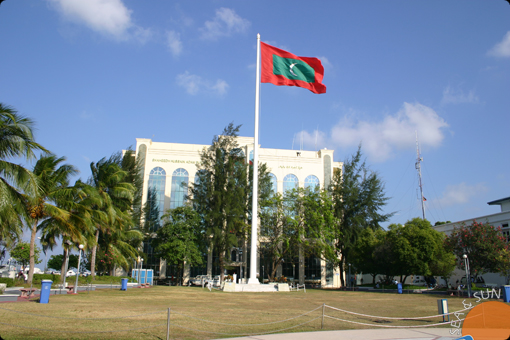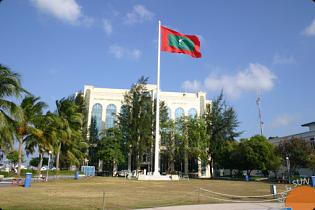Maldives: Polls for new president underway
Voters in the Maldives went to the polls on 9 November to elect a president after two previous attempts failed. Tensions are high after one vote was annulled and a re-run halted by police.
On 6 November 2013, candidates came to a last-minute agreement and agreed to sign voter lists required for the election to take place and take part in elections scheduled for 11 November.
If no candidate gets more than 50% of the vote then a second vote is scheduled to take place.
There was a constitutional crisis in Maldives since a new president could take office as per the required time frame. None of the candidates who contested for the presidency could obtain the necessary 50% votes.
According to the Maldives constitution, a new president now has to be in place by 11 November when the current presidential term ends.
Elections Commission official Aishath Reema said Voting got underway at 475 polling booths across the Maldives and several foreign capitals where Maldivians live.
Battle for Mali
Former President Mohamed Nasheed, who was forced from office in February 2012 in what he has described as a coup sparking a political crisis, is seeking to regain power at these elections. Supporters of Nasheed's opposition Maldivian Democratic Party allege the government and judiciary are attempting to influence the electoral process, fearing he will return to power. Nasheed was forced from office. Waheed, who succeeded him, claims Nasheed resigned of his own accord in the face of opposition demonstrations.
Nasheed was the clear frontrunner in the next presidential elections, held in 2013, but failed to secure an outright majority. The result was annulled by the country's Supreme Court and a fresh election called.
Political unrest has also seen demonstrations by Islamist groups. Media reports suggest that they are gaining influence, especially on the more-remote islands.
Nasheed, won the country's first-ever democratic vote in 2008, ousting Maumoon Abdul Gayoom, who ran the country autocratically for three decades. His main rival at the ballot box is Gayoom's half-brother, Abdullah Yameen. The other major contender is Gasim Ibrahim, a wealthy resort owner and a former minister under Gayoom.
In a vote on 7 September, Nasheed led with 45% of the vote, while Yameen and Gasim trailed with 25% and 24% respectively. President Mohamed Waheed Hassan Manik got 5% and later bowed out. That vote was annulled by the Supreme Court after Gasim alleged irregularities, despite observer groups deeming the vote free and fair. The court also introduced new guidelines for elections. Police halted the planned re-run on 19 October saying the guidelines had not been met, after both Gasim and Yameen failed to approve the registry of voters.
Wealth and poverty
The Maldives is an Islamic republic which lies off the Indian sub-continent. It is made up of a chain of nearly 1,200 islands, most of them uninhabited. None of the coral islands measures more than 1.8 meters (six feet) above sea level, making the country vulnerable to a rise in sea levels associated with global warming. With its abundant sea life and sandy beaches, The Maldives is portrayed by travel companies as a tropical paradise. The economy of Maldives revolves around tourism, and scores of islands have been developed for the top end of the tourist market. Aside from the island capital Male, outsiders are only permitted onto inhabited islands for brief visits, thereby limiting their impact on traditional Muslim communities.
Alcohol is forbidden by law in Maldives. Most tourists are taken straight to their island hideaway by seaplane or speedboat, where they are free to drink alcohol and get luxurious spa treatments, insulated from the everyday Maldives, where alcohol is outlawed and skimpy beachwear frowned upon.
The Maldives held its first multiparty elections in 2008, following decades of autocratic rule. The first democratically-elected president, Mohamed Nasheed, resigned in 2012 in the wake of opposition protests, and after a mutiny by police and the military. He said his resignation had been forced on him at gunpoint and dismissed charges subsequently brought against him as politically motivated. In February 2012, President Mohamed Nasheed forced from office in disputed circumstances, sparking protests; his deputy, Mohamed Waheed Hassan Manik, took over.
The Maldives was hit by the December 2004 Asian tsunami. Homes and resorts were devastated by the waves, precipitating a major rebuilding program. There is a fear that as sea levels rise, island countries such as the Maldives, and some Pacific territories, will simply be swamped and disappear.
Many Maldivians live in poverty. However, the country has developed its infrastructure and industries, including the fisheries sector, and has boosted health care, education and literacy.
Comments
There are 0 comments on this post













